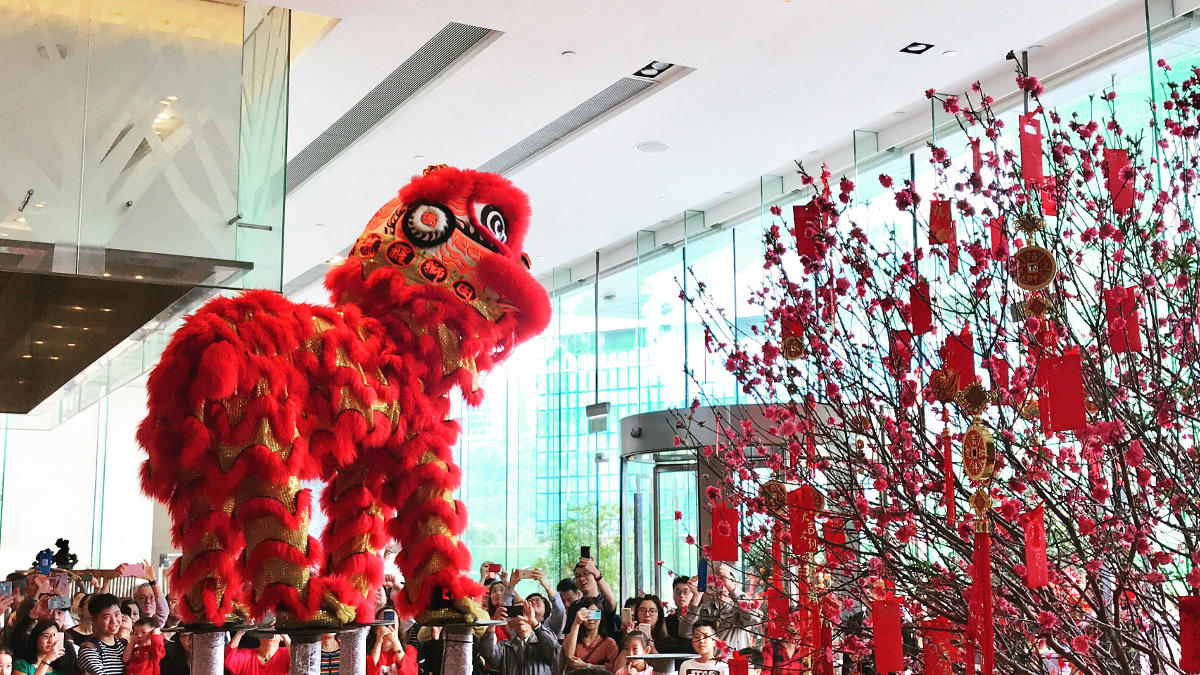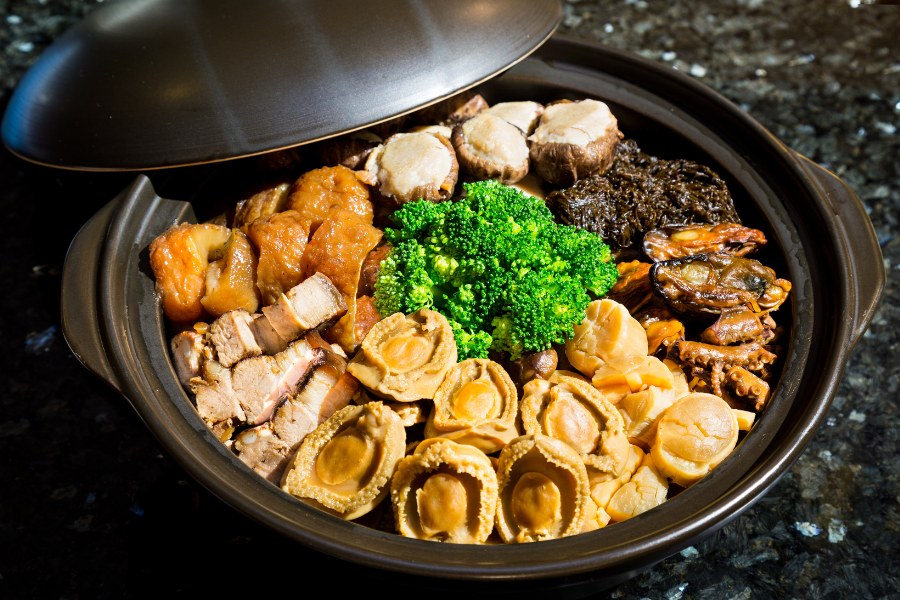Called ‘Chinese New Year’ in Chinese cultures but more accurately called ‘Lunar New Year’ or ‘Spring Festival’ across different Asian cultures, this holiday marks the beginning of a new year in the lunar calendar. Lunar New Year Festival is rich in tradition dating back roughly 3,500 years, and considered by many as the most important festival time in Hong Kong.
Occurring on the day of the second new moon after Winter Solstice Festival (which usually falls around the end of January and early February), Chinese New Year is a time to bid adieu to the old and welcome new beginnings, just like the new year at the beginning of January in other cultures. Here’s everything you need to know about Hong Kong’s Chinese New Year celebrations.
What is Chinese New Year?
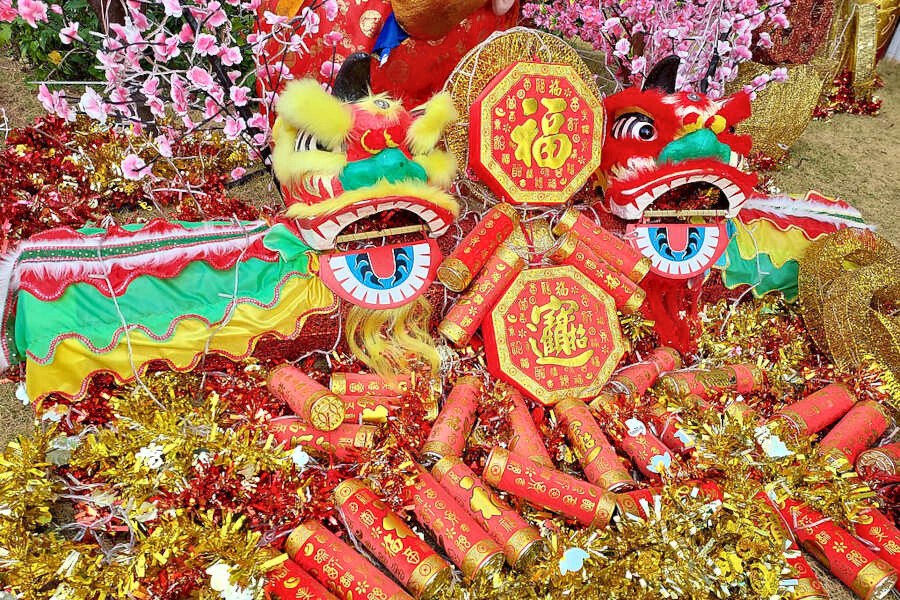
Chinese New Year marks the beginning of a new year in the lunar calendar. In 2024, Chinese New Year lands on February 10. Being the biggest and most renowned holiday in Asian cultures, celebrations actually span 15 days, with symbolic activities on each day.
Chinese cultures follow the lunar calendar, which tracks the moon’s movement, while Western cultures follow the Gregorian calendar, a solar calendar. The number of days in a lunar year is a bit shorter, generally from 353 to 355 days, while the solar calendar accounts for 365 days, the revolution of the Earth around the sun. With the lunar calendar, every three years, there is a leap month to keep everything in sync.
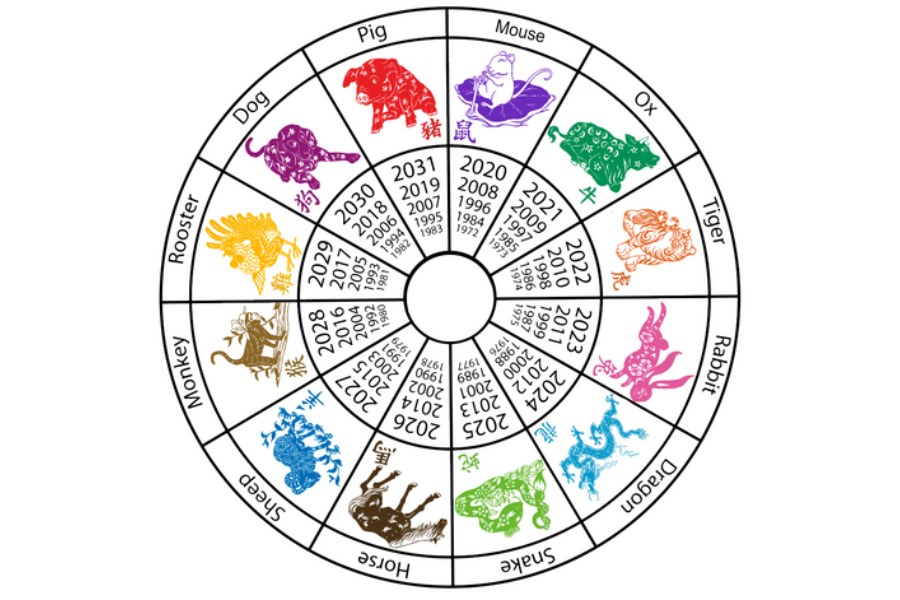
In the Chinese zodiac, each year is represented by an animal. So, how do you know what year of what animal it is? The calendar has a 60-year cycle, which is split into five smaller 12-year periods. Each year in the smaller 12-year cycle represents one of the 12 animals, and once the 12-year period has ended, a new cycle begins. The year 2024 marks the Year of the Dragon, the only mythical creature and the most powerful sign in the Chinese zodiac. The Year of the Dragon is considered particularly special, symbolizing health, strength, and good fortune.
What are the origins of CNY?
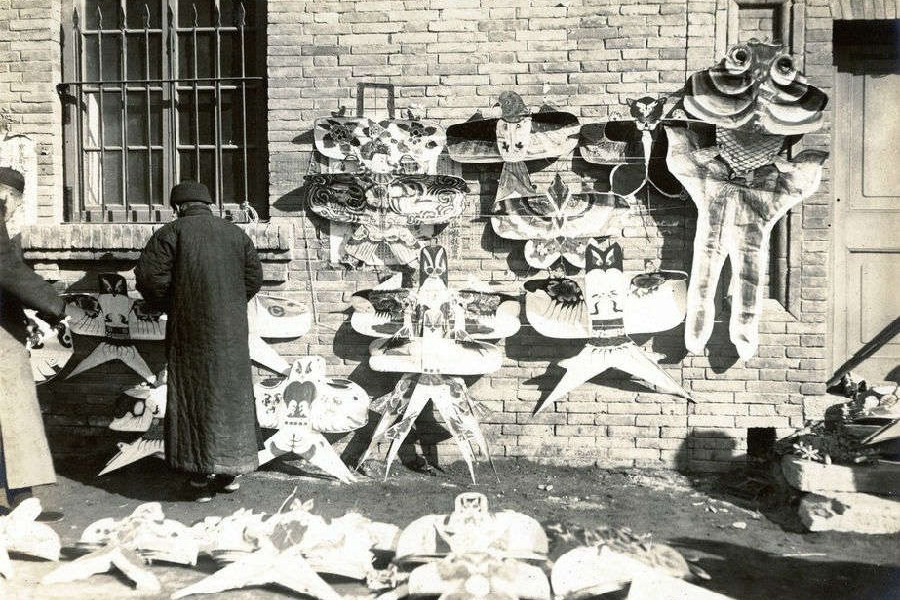
Chinese New Year is the most important Chinese holiday that was first noted in the Shang Dynasty (1600–1046 BC). It began as a celebration to welcome spring and was later on recognized as a public holiday in 1914. But, the height of the Cultural Revolution in the 1960s put a halt to the festivities. The public holiday was later reinstated and remains one of the most significant festival periods.
Historically speaking, Chinese workers who ventured out from their rural communities for work would travel back home, no matter how far, to reflect on the time that has passed and ring in a new year filled with positivity and fortune together with family. The cultural significance of Chinese New Year is deeply rooted in reuniting families and honouring gods and ancestors.
How to celebrate during the 15 days of CNY?
Compared to Western culture, Chinese New Year celebration spans for 15 days. In 2024, the festivities for Lunar New Year will occur from February 10 to 24.
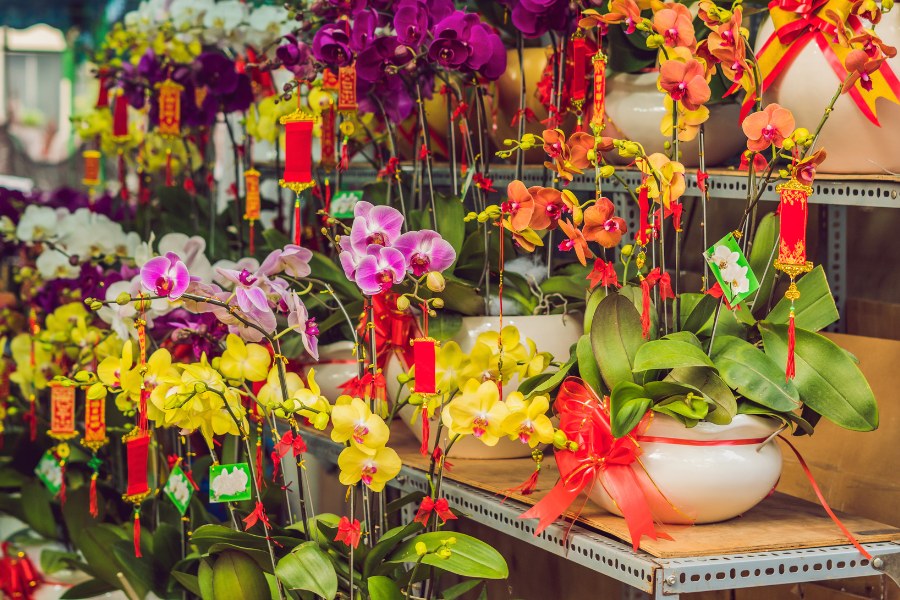
In the days leading up to the new year, people clean their homes to sweep out the end of the year’s accrued dust, which represents bad luck. Shopping for clothes also take place, where even the most frugal indulge in buying new clothing for the brand new year. People visit Lunar New Year fairs around the city to purchase fresh flowers, tangerine plants, and snacks like ginger candy, peanut candy, baked seeds, and candied strawberries.
On Lunar New Year’s Eve, families reunite to dine over dinner and hang up spring couplets outside their doors to ward off evil and bring in prosperity.
On New Year’s Day, the first of the 15 days of festivity, family members wake up and wish each other the traditional greeting, gong hey fat choi (恭喜發財), meaning “Best wishes for a prosperous new year!”
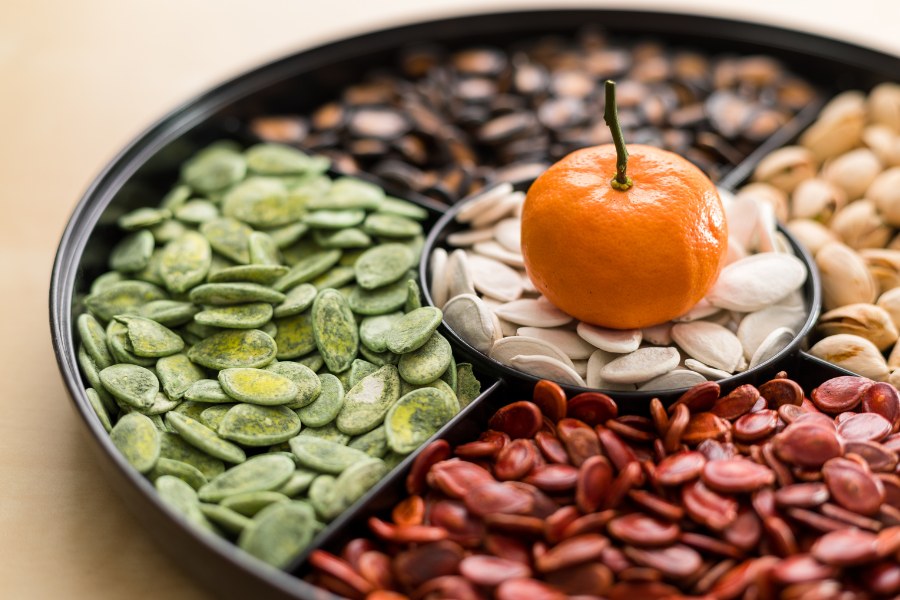
During the first day of Chinese New Year, it is a custom to visit and pay respect to the eldest member of the family. If you have a guest, you should welcome them with eight sweet treats or fruits on a round platter. This symbolizes togetherness and luck. As a courtesy, guests give oranges or tangerines to their hosts as they bring prosperity and fortune to their household. This visitation with family and friends occurs throughout the 15 days, during which you wish each other luck for the upcoming year.
Red envelopes that contain money are also given at that time. Called hong bao in Mandarin (紅包) or lai see in Cantonese (利是 or 利事), they will be given while bestowing spoken blessings upon each other. Firecrackers are also set off (the louder, the better) and sacrificial offerings made to ancestors.
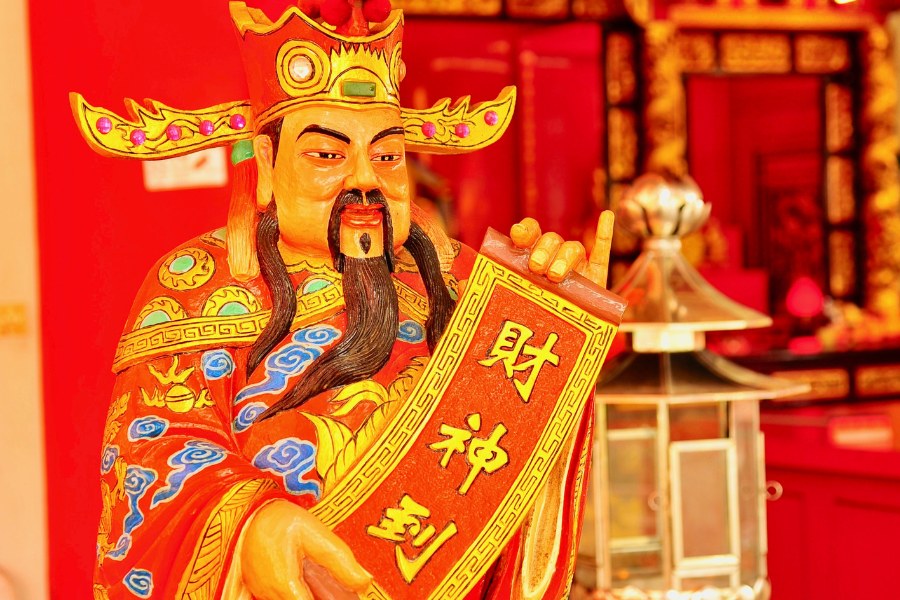
On the second day, people offer sacrifices to the God of Wealth, Caishen (財神), burning a picture of the deity while wishing for a prosperous year. Many will also pray for their ancestors and other gods. The second day of the new year is also referred to as the birthday of a dog. So, if you love animals, you should feed pets and stray animals too.
In Hong Kong, it is also customary to have a fireworks display over Victoria Harbour on the second day of the Lunar New Year. This year, we can look forward to a grand return of the fireworks show after a hiatus of five years.
A dish that is associated with the second New Year’s Day is wontons; if you love them, you can eat as much as you can during this day! Some say it will bring you good fortune because it resembles the shape of a gold ingot.
During the third and fourth days, families usually visit their deceased loved ones. But, house-visiting and going outdoors for too long are not advisable on these days because some believe that evil spirits roam around.
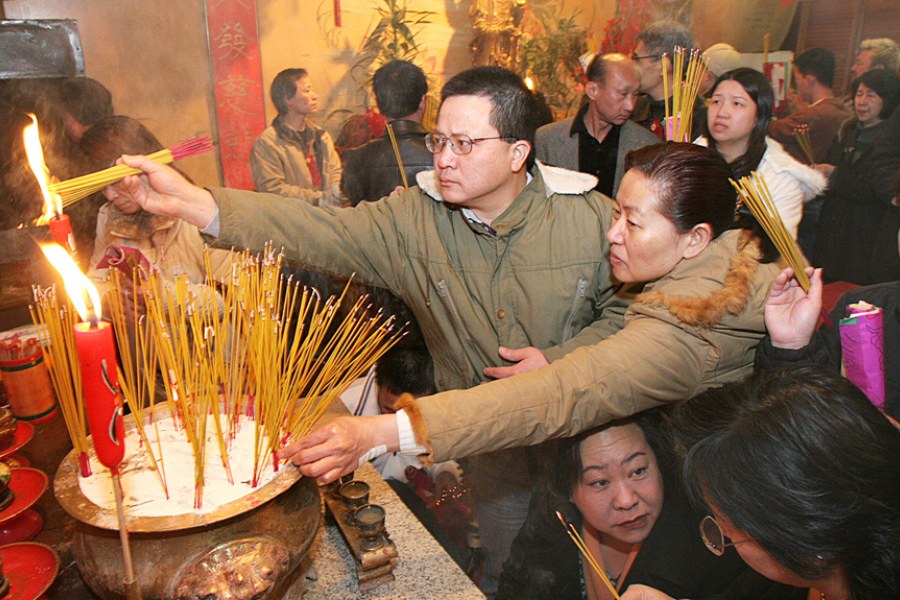
On the fifth day, people pay respect to the God of Wealth again. He may visit the home to bring his blessings, so people make sure to be there to welcome him with incense and food offerings.
On the sixth day, people go to the temples to worship their chosen deities and visit friends and relatives.
The seventh day of the new year is the day of Renri (人日), which can be considered the birthday of all mankind, the day human beings were created. To honour the deity who created humans, the mother goddess Nüwa (女媧), you should eat only raw fish or yusheng (鱼生), a salad with raw or soy fish and shredded vegetables.
On the eighth day, people have another family gathering and give thanks to the Jade Emperor. The emperor’s birthday falls on the ninth day of the new year, when there is even more festivity. From the 10th to 12th days, the celebration is continued with friends and family.
On the 13th day, people go on a diet to flush out the copious amounts of food from previous days of feasting. If you ate all the wontons on the first day, this is the perfect time to start eating healthier in preparation for the rest of the year.
On the 14th day, people start planning the Lantern Festival to be celebrated the next day.
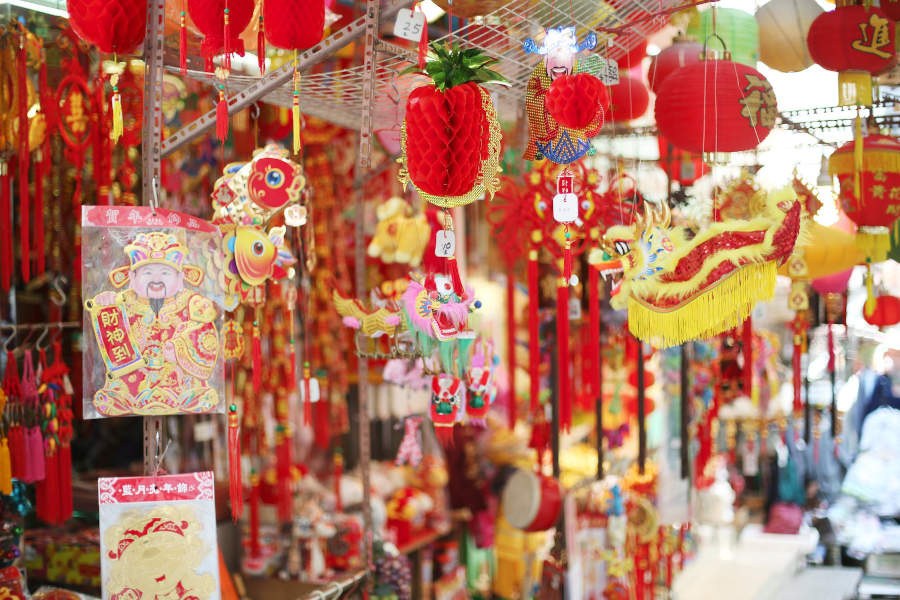
Drawing a close to the festivities, on the 15th day, lanterns are hung throughout the city to light the path for gods and ancestors to return home to the afterlife. The bright paper lanterns, usually red, also symbolize a bright future ahead. People gather on the streets to watch lion dance parades and play with colourful lanterns hung on sticks. Sometimes, riddles will be written on slips attached to the lanterns.
As with every festival, involvement of food is paramount. Round, glutinous sweet rice dumplings, a.k.a. tang yuan (湯圓), are eaten as they symbolize wholeness and completeness, concluding the lunar new year festivities.
What to eat during CNY?
During Chinese New Year, certain foods symbolize good fortune and prosperity, based on the pronunciation of their names as well as appearance.
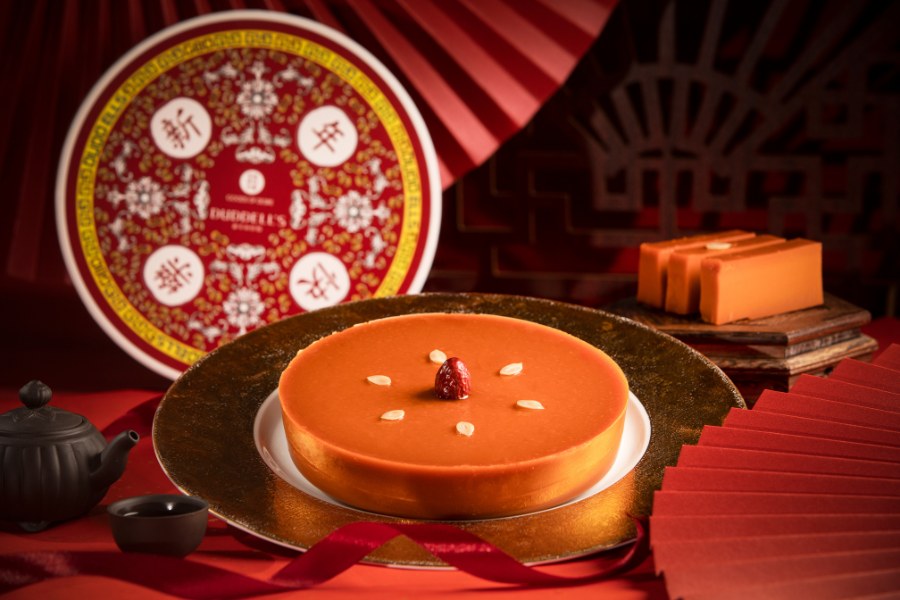
If you want longevity, you should eat noodles. Fish is symbolic of bringing a surplus of luck. Dumplings are also a staple since their shape resembles an ingot of precious metal, representing wealth; the more eaten, the more wealth is accrued. Glutinous rice cakes called nian gao (年糕), literally meaning year cake are devoured in both sweet and savoury forms to ensure a higher position in life. Other food that will bring you luck are spring rolls, fish, and rice balls.
Poon choi (盆菜) is another dish eaten specifically in Hong Kong during Chinese New Year, which is layers of seafood, meat, and vegetables cooked in and eaten from a basin. The dish originated from a story about a king going into a village to visit the townspeople; the poor village folk gathered all the best food in their homes and presented it to their king in a large basin.
While visiting the homes of relatives and friends, be sure to spot a platter full of dates, nuts, dried longans and lotus seeds served. Tangerine tree plants are also a common sighting as they represent overall abundance and fullness.
What to gift during CNY?
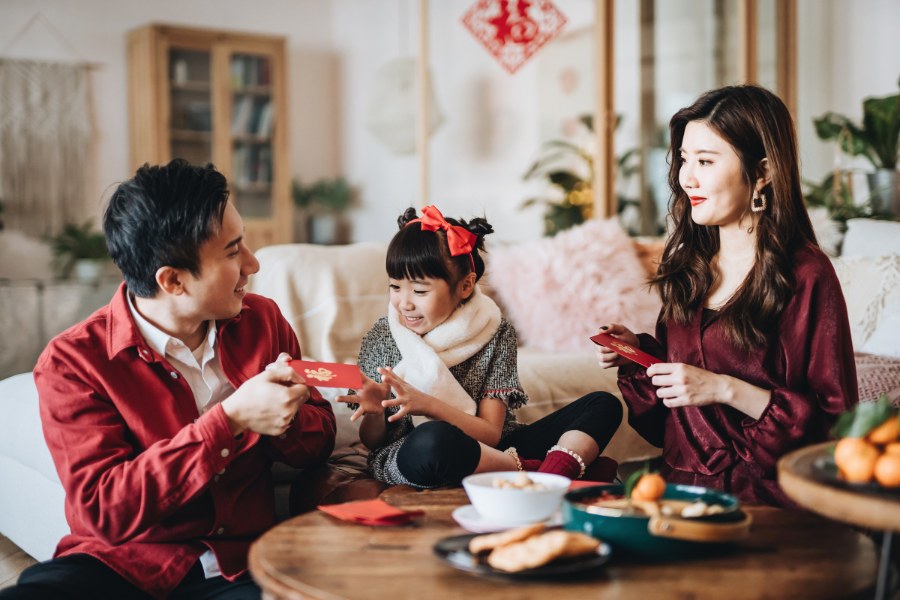
As for the gifts, the lucky red envelope is the most popular. This is a monetary gift, usually given to younger people and relatives. However, packets containing small amounts are also given out to people seen on a regular basis, such as security guards in your building or shopkeepers. As far as non-monetary gifts, since round fruits are lucky, they are generally given as gifts. Drinks and tea are standard, also.
CNY superstitions
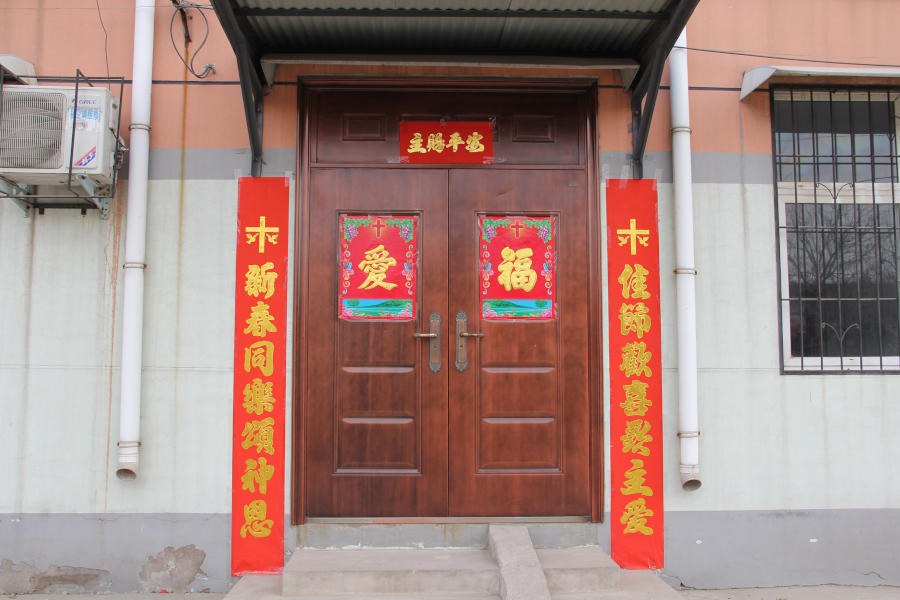
An important Chinese festivity doesn’t come without superstitions and there are certain things to avoid during Chinese New Year. For example, it’s advised not to take the trash out in the first two days because it’s believed to sweep away all the good luck left from the litter of the firecrackers and fallen red decorations. The number four should be avoided as it sounds like the word death in Chinese. Sharp kitchenware like knives should be used as little as possible since they symbolize the cutting off of wealth. Hair shouldn’t be washed because it symbolizes washing away one’s fortune. Dishes shouldn’t be broken as it’s considered bad luck. You should decorate your house abundantly with red because it scares demons away.
Lunar New Year in other Asian cultures
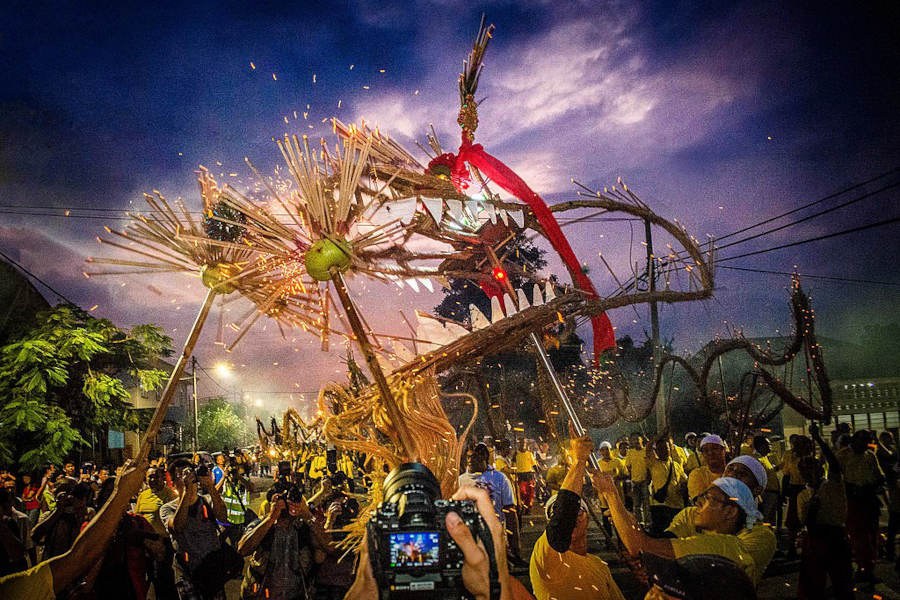
Chinese New Year is observed in other Asian countries that also follow the lunar calendar. During Tết in Vietnam, people perform ancestral rituals and pay off as much debt as possible to start on a clean slate. For Seollal in South Korea, people celebrates for up to three days by paying respect to ancestors. During Khmer Lunar New Year or Choul Chnam Thmey (meaning “Enter the New Year”) in Cambodia, which is celebrated in April, people exchange gifts, visit temples, and play traditional games over three days. Despite the differences in traditions throughout the world, the one common thread among all these countries is reuniting and enjoying food with loved ones.
FAQ about Lunar New Year
Why is Chinese New Year so important?
Chinese New Year marks the beginning of the lunar calendar, which Chinese, Korean, Japanese, Vietnamese, and other Asian cultures still follow. Compared to the Gregorian calendar, which is based on the position of the sun, the lunar calendar was historically used to guide agricultural activities.
When is Chinese New Year in 2024?
In 2024, Chinese New Year will fall on February 10 and celebrations will last from February 10-24.
What animal is it for Chinese New Year 2024?
2024 is the Year of the Dragon. In the zodiac chart, the mythical creature – dragon represents health, strength, and good fortune.
Other traditional Chinese festivals: Lunar New Year — Lunar New Year Fair — Birthday of Che Kung — Chinese Lantern Festival — Kwun Yum Treasury Opening Festival — Ching Ming Festival — Tin Hau Festival — Cheung Chau Bun Festival — Buddha’s Birthday — Birthday of Tam Kung — Dragon Boat Festival — Birthday of Kwan Tai — Qixi Festival — Hung Shing Festival — Hungry Ghost Festival — Mid-Autumn Festival — Monkey King Festival — Birthday of Confucius — Chung Yeung Festival — Winter Solstice Festival.
Header image credits: The HK HUB


